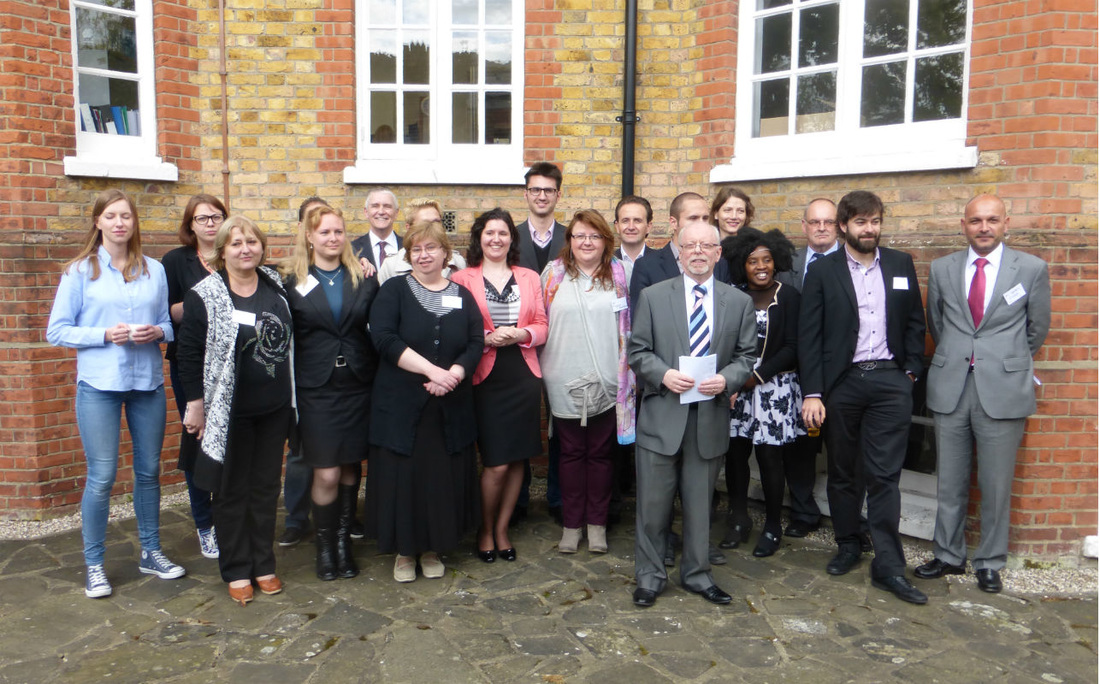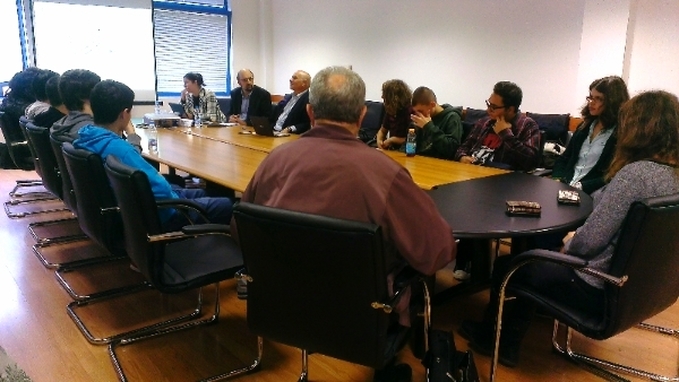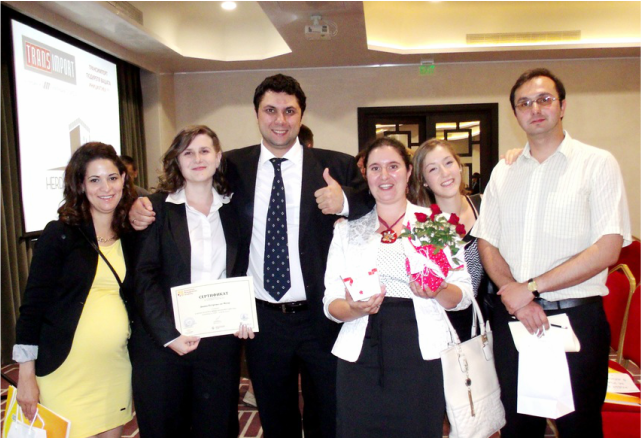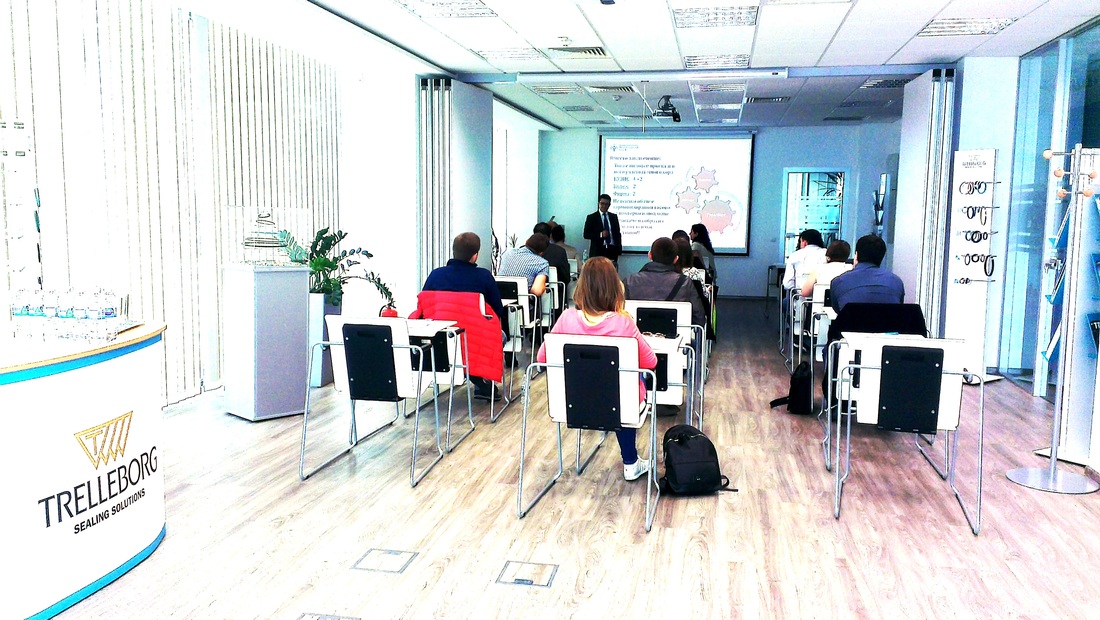|
The Knowledge, Innovation and Strategies Management Club joined the Bulgarian Network of the United Nations Global Compact in September 2016. KISMC was awarded a Certificate for joining the Global Compact and committing to promote the Ten principles of Global Compact in its everyday operations. The certificate was received at the National Council meeting on 20th September by Mr. Ognian Trajanov, Chairperson of the Steering Committee. The Global Compact is the worlds largest corporate sustainability initiative with over 12 000 organisations involved from 170+ counries. The Compact is a voluntary initiative of the former UN Secretary General, Mr. Kofi Annan, bringing together business and non-governmental organizations, academic institutions, cities and UN agencies in a truly global forum to promote sustainable growth and civic responsibility. The ten Principles of the Global Compact are aimed at the implementation of responsible business practices in the field of human rights, labour standards, environment and anti-corruption. The Bulgarian Network of the UN Global Compact, which operates as part of the global network and was officially launched on May 6, 2011 by H.E. Ban Ki-moon – Secretary General of the UN, is an association of companies and NGOs. Reasons for KISMC to join the UN Global Compact One of the main reasons for KISMC to join is to contribute and support one of the Sustainable Development Goals, i.e. Industry, Innovation and Infrastructure. This objective foresees the following development locally in Bulgaria:
Sustainable Development Goals of the initiative The Sustainable Development Goals of the UN Global Compact strive for improving the world via a collective way. In September 2015 a plan for achieving a better future for all was adopted, i.e. to end extreme poverty, fight inequality and injustice, and protect the planet Earth. At the heart of “Agenda 2030” are the 17 Sustainable Development Goals. For more information on the Sustainable Goals, please read here The 10 Principles of the UN Global Compact The UN Global Compact’s Ten Principles are derived from: the Universal Declaration of Human Rights, the International Labour Organization’s Declaration on Fundamental Principles and Rights at Work, the Rio Declaration on Environment and Development, and the United Nations Convention Against Corruption.
During 2013-2015 CSI, in cooperation with the Knowledge, Innovation and Strategies Management Club, betahaus Sofia and Sofia Tech Park had been organising the so called Mercury - Jupiter Meetings to bridge the gap between scientists and business people in Bulgaria and help them understand each other’s culture. At those meetings groups of scientists and business people talked about their cultures and discussed ways to bridge the gap between each other. For the span of those two years the meetings gathered interest from the Bulgarian community and many attended to get involved in the discussions and look for the best ways to reduce the size of the gap between scientists and businessmen. The Mercury - Jupiter meetings were also attended by guest speakers who would guide the meeting towards a specific topic. The topics of discussions had been related to the experience of the speakers. Below you could see some of the guest speakers during 2013-2015.
On 7 May 2015 an interactive workshop was held at Middlesex University where the draft methodology based on initial research under the Erasmus + Project - Action Project for Innovation (APInno) was presented and discussed. Feedback from delegates was gathered and reflected in the revised methodology and final outcomes. The presentation was followed by a practical workshop where delegates were given the opportunity to experience the proposed learning methodology through real business challenges.
Action Programme for Innovation (APInno) involves partners from across the EU to develop a methodology to facilitate the transfer of innovation skills from Higher Education Institutes (HEI) to business. The project aims to develop an experiential learning programme (at degree and/or masters level) as part of the HE curriculum. This will integrate the critical fundamentals of business, innovation management, growth, competitive dynamics and market simulation. The planned outcome will be the development of innovative course materials, online tools and a platform enabling idea generation and capture; including team work and analysis at successive stages of the curriculum, through to the final presentations. Participants from academia and business had the opportunity to network and discuss the draft methodology to date and played interactive games where the entrepreneurs and business delegates had to solve specific challenges. 'Innovation - a bridge between science and business' at the European Day of the Entrepreneur 201415/10/2014 KISMC organised its own discussion panel during the 12th annual forum "European Day of the Entrepreneur 2014" to promote entrepreneurship in Bulgaria, which takes place within the European SME Week during 16th and October 17th 2014., Inter Expo Center in Sofia.
The panel's title was 'Innovation - a bridge between science and business'. The topics that were covered at the panel were: Open innovation and student internships - an unexpectedly good combination; Corporate entrepreneurship - a catalyst for knowledge and breakthrough innovations; Innovation Management Training. KISMC is grateful for the active participation of representatives of the Innovation Management Academy; MTM College; Team Europe Junior; Business Club Sofia University; Alumni Association, FEBA, Sofia University as well as the interest from school students representing the Private Secondary School Ivan Apostolov and other organisations curious to learn about the connection between education, science and business and what this means for innovation. The official ceremony for the final stage of the first Initiative 'APInno - Innovation in Action' of the Innovation Management Academy took place in Radisson Blu Hotel on 16 July 2014. Ognian Zlatev, the head of the European Commission Representation in Bulgaria, opened the ceremony stating how important innovations are to improve the competitiveness of Bulgarian companies and in general the whole of Europe.
For more than a month students from different schools and disciplines were working in the field of innovation. Their training based on practice and experience was part of Bulgaria's first business practice in innovation management "APInno - Innovation in Action". The main purpose of APInno was to upgrade the skills of young people to generate innovative business ideas, encourage creative thinking and to introduce modern techniques to resolve companies' problems. Some of the work phases included generating ideas, analysis and evaluation, development of concepts and business models, etc. The mentors participating in the project have experience in the field of innovation management, business development and strategic management in Bulgaria and abroad (HIRON Management Consulting, MT&M College, Az Upravlyavam). The APInno approach was based on learning through experience and the students’ interest in learning and practising innovative management had been tested. Also, this project checked the benefits that companies could have when collaborating with universities. At the closing ceremony Ruslan Papazyan, director of Trelleborg Bulgaria, awarded the students: 1. The Medical Applications team won the prestigious ‘First place’ 2. The Electronics team won the prize for ‘Creativity and Presentation’ 3. The Sanitary products team won the prize for ‘Comprehensive industry analysis’ All participants in APInno - Innovation in Action received a certificate from the Innovation Management Academy. The certificates were handed by Vesselin Iliev, DG International Economic Relations in the Bulgarian Industrial Association. After the ceremony all participants enjoyed the delicious taste of Portuguese wine, delivered by Transimport. The first Innovation Management Academy(IMA) in Bulgaria has launched with the so called project 'APInno - Innovation in Action'. The project aims to build a bridge between educational institutions and businesses and get those that help develop innovation and innovation management at different levels. The main objective of this first initiative of IMA is to introduce the world of innovation and its management to students, professionals and organisations through teamwork, interactive discussions, games and most importantly real cases of innovative companies to be resolved.
In Southeastern Europe it is often talked about innovation, but rarely it is discussed what innovation is and how innovation could be managed. Therefore, IMA which has launched in Bulgaria has the opportunity to introduce new tools and interactive games that help students to acquire knowledge and skills in a real environment and at the same time face the challenges of businesses. The idea behind is that this way of working not only could motivate students to exchange ideas and experiences with colleagues and professionals in the field of innovation and innovation management. The first initiative of the Innovation Management Academy has started as a strategic partnership between KISMC, Trelleborg Bulgaria and MT&M College. The initiative is a modern way to fill the gap between universities and businesses by providing real life challenges of companies to be resolved by carefully selected students with a variety of backgrounds. All students will get knowledge and skills in the field of innovation and innovation management, team work via interesting games and help from the teams' mentors related to resolving the company's innovation case. All aspects of challenges involved have the purpose of giving a taste of what should be expected of people working in the field of innovation management. The students of APInno are already generating ideas, working hard and reaching results due to a well structured programme focused on important skills and competences. To bridge the gap between scientists and business people in Bulgaria and help them understand each other’s culture, CSI (Richard Smits) in cooperation with betahaus Sofia, KISMC and Sofia Tech Park organise Mercury - Jupiter Meetings. During those meetings business people and scientists explain to each other their culture and way of work and discuss ways to bridge the gap between them.
In the Global Innovation Index, Bulgaria is 41st out of the 142 countries studied: it is one of the lowest in the EU, but better than all of Bulgaria’s neighbours and better than the world average. However, in one aspect, “University/industry research collaboration”, Bulgaria is far worse than the countries it normally compares itself with. It only scores 114th, 12 places below Burkina Faso! This means that a lot can be gained if we can improve on this aspect. In 1992, the American author John Gray published the book “Men are from Mars, Women are from Venus”, where he explained the differences between men and women as cultural differences and concluded that they “seem to be from different planets”. The same may be said of scientists and business people. |
KISMC TeamBlog post by our team, innovation contributors, VIP members, blog guests, etc. Archives
January 2024
Categories
All
|
|
The Knowledge, Innovation and Strategies Management Club is a non-profit organisation set up in Sofia, Bulgaria in 2012 to foster knowledge and innovation management across South East Europe. KISMC is supporting the development of the innovation ecosystem in the region by bridging the gap between education, research and business.
|
© COPYRIGHT 2013- 2021. KISMC. ALL RIGHTS RESERVED.
|









 RSS Feed
RSS Feed